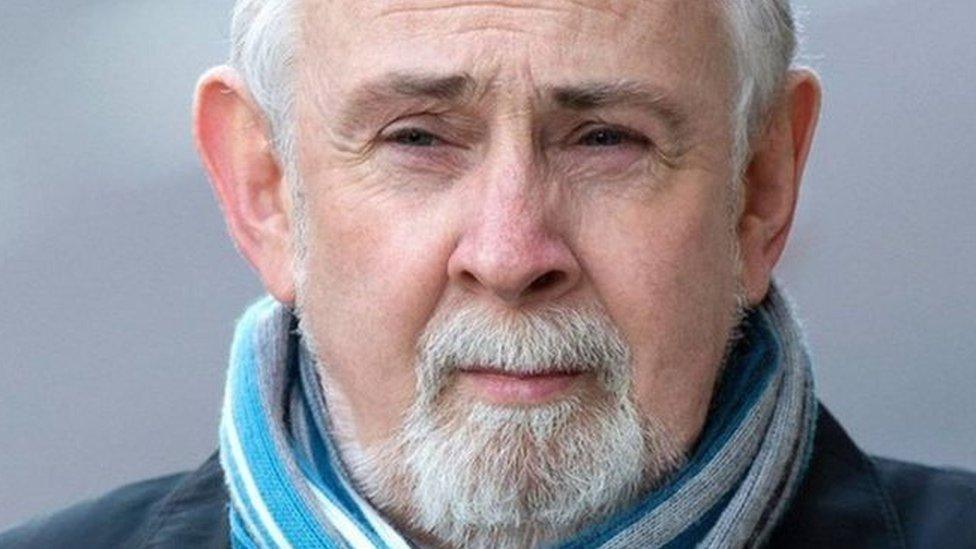Hyde Park bomb: Damages to be decided after John Downey civil case
- Published

A judge ruled John Downey was an "active participant" in the bombing
Relatives for four British soldiers killed in the Hyde Park bombing are seeking "substantial damages" at the High Court.
Family members of Household Cavalry soldiers killed in the July 1982 IRA attack in London brought the civil action against John Downey.
It followed the collapse of a criminal case at the Old Bailey in 2014.
A High Court judge ruled last year that Mr Downey was an "active participant" in the bombing.
He said Mr Downey was jointly responsible with others for the attack, which left 31 other people injured.
Mr Downey did not play any part in the trial, but filed a written defence denying any involvement in the attack.
At a remote High Court hearing, which started on Tuesday and is due to last two days, Mr Justice Martin Spencer will consider how much compensation the families of the victims should be awarded.
Sarah-Jane Young as a child pictured alongside her father, L/Cpl Jeffrey Young
A lawyer acting for claimant Sarah-Jane Young, daughter of victim L/Cpl Jeffrey Young, told the court the state had "failed" the families in their quest for justice through the courts.
"This is therefore the claimant's only remaining route to seek justice for the atrocity that led to the death of her father," the lawyer said.
The court was also told the claimant, who was four when her father was killed, had suffered post-traumatic stress disorder (PTSD) and depression as a result of the bombing.
She had been nearby, in a nursery in the barracks, and heard the explosion before seeing injured soldiers return to the Knightsbridge barracks.
Lawyers said there should be a "substantial, punitive award of exemplary damages to reflect society's disgust, amount to a deterrent and to mark society's condemnation of such actions".
Squadron Quartermaster Cpl Roy Bright, 36, Lt Dennis Daly, 23, Trooper Simon Tipper, 19, and L/Cpl Young, 19, were killed by a car bomb as they rode through the central London park to attend the Changing the Guard ceremony.
Four Household Cavalry soldiers died in the Hyde Park bomb attack
The car bomb, which was packed with nails and had been left in South Carriage Drive, was detonated by remote control, killing the four soldiers as they paraded from their barracks to Buckingham Palace.
Two were killed instantly while L/Cpl Young and Cpl Bright died within days.
Seven horses had to be put down and another horse, Sefton, survived terrible injuries.
Ms Young's lawyer said it was "a defining moment in the IRA attacks on the British establishment".